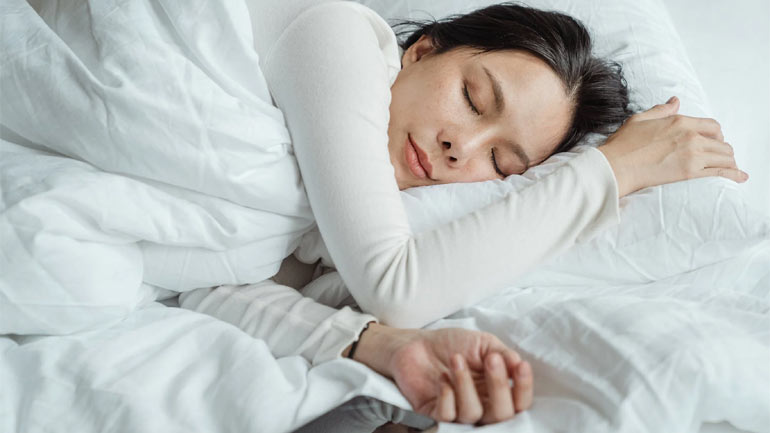
Before you learn the factors that can benefit your sleep, it would be wise to know those that can hurt it. There are many habits and things that can hurt your sleep. These factors are: –
1. Noise
Noise can affect a person’s sleep. What is “noise”? Well, according to the definition, noise is any type of sound that is not pleasant to your ears. Any kind of noise can still impair the quality of your sleep, even if it does not wake you. That is because, even when you are asleep, your senses are still working and noise will increase your stress. The best thing about noise is that it will affect you differently based on the type of noise.
For example, sudden noise is more likely to disturb your sleep and wake you up compared to constant noise. Based on this fact, noise from your air conditioner may not bother you much (in fact, it can even act as white or masking noise) compared to outside noise. Nevertheless, the same AC noise may disturb your sleep, especially if it starts while you are already sleeping. The type of noise that is most likely to disrupt your sleep, according to sleep experts, is that which has meaning. For example, two people talking at equal volume are more likely to wake you up compared to music. This is why it is possible for people to snooze through heavy road traffic noise, but they will sacrifice sleep quality.
Consider investing in earplugs if you must sleep in a noisy environment. However, you have to note that earplugs attenuate high frequencies more compared to low frequencies. As a result, it will protect you from car honking rather than traffic rumbling. The good news is that noises like a car honking are sudden noises that are surely going to wake you up. Another option for minimizing noise quality is by soundproofing the bedroom.
According to research, many people prefer soundproofing the bedroom with the goal of boosting sleep compared to other options like using earplugs. This is because earplugs have their own limitations compared to soundproofing the bedroom. Due to advancements in technology, there are proof windows as well.
2. Alcohol
Alcohol is known to cause the central nervous system to relax. It achieves this by binding to GABA receptors in the brain. That is why alcohol helps a person unwind. However, when a person drinks alcohol in excess, the brain will shut down the body – at this point, the person loses consciousness. People have the misconception that because alcohol makes a person lose consciousness, it is a great method for boosting sleep quality. However, this is far from the truth, as proven by countless pieces of research.
The actual truth is that alcohol will make you fall asleep, but it will not improve the quality. Moreover, the effect alcohol has on making a person fall asleep fades after a few days of continuous intake. that is because the body adapts to alcohol intake. The irony behind all this is that alcohol use disorder is linked to insomnia.
If your goal is to have a relaxing sleep, don’t use alcohol as an aid. It may help you relax, but it will affect the quality of sleep. This is why professionals recommend avoiding alcohol after dinner. Even if you only had a sip before going to bed, alcohol will disrupt your sleep.
3. Light
Just like sound, the light will affect a person the same way, even if they are asleep. That is because light helps regulate a human’s biological clock through a hormone known as melatonin. This hormone uses light to inform the body when to wake up and when to sleep. The light produced by the sun has blue wavelengths, which are the same as those produced by computer screens, TV sets, and smartphones. The blue light will affect the quality of sleep. A statistic conducted to examine the impact of smartphones with and without blue light showed that blue light reduces sleep.
If you are a person who uses electronics before bed, consider programs or apps that reduce blue light. The best thing is that a majority of these devices come with such programs preinstalled. If adjusting the color balance is not easy for you or the source of the light is shared among different people, you should consider investing in blue light-blocking glasses. Because blue light is the issue, it is wise to consider avoiding bright lights for a few hours before going to bed.
You should note that even when you are sleeping, light can still affect the quality of your sleep. If you live in an area where light pollution is an issue, consider investing in blackout curtains or simply using a sleep mask. Avoid screens at least an hour before going to bed. By applying this simple technique, you will be able to fall asleep quickly.
4. Caffeine
Consuming caffeine is safe and offers some benefits. But it comes with one major limitation. When caffeine is consumed before bed, it will affect your sleep. That is because it blocks different adenosine receptors in the brain, with different effects. When the A1 receptor is blocked, it increases alertness. When the A2A receptor is blocked, it will increase dopamine levels. This will stimulate and enhance mood effects.
Coffee veterans no longer feel stimulated because both A1 and A2A receptors become insensitive to caffeine. This is why you may find that such a person does not feel true stimulation even after drinking several cups. Caffeine cycling is a common choice for such a person. Many caffeine veterans think that because caffeine does not affect them, it will not affect their sleep quality.
Of course, people can still find sleep with caffeine in their veins. However, it will make such a person become more alert as well as experience shallow sleep. Remember, the problem is that you cannot fall asleep with caffeine in your veins. The issue is that it will affect your sleep. This is why sleep experts advise people to avoid caffeine for at least 6 hours before going to bed. It does not matter if you are a caffeine veteran or a newbie, caffeine will affect your sleep quality.
5. Heat
Insomnia is associated with high body temperatures. In fact, it is one of its symptoms. For this reason, if your bedroom is too warm to a point where it increases your core body temperature, you may have problems falling asleep and are likely to experience poor sleep quality. On the other hand, if the body core temperature is too low, you will find it difficult to sleep. For this reason, your bedroom should not be too cool or too warm. The temperature should be just right when sleeping.
Professionals recommend finding a cool room to sleep in, even if the high temperature does not prevent you from sleeping. Heat is known to impair the quality of sleep more than a cool temperature. In fact, it has been proven that heat is worse than noise when it comes to sleep.
Ambient warmth can delay sleep and reduce its quality. However, a cool room reduces the time a person takes to fall asleep. Dreamcloud’s success with customers has given them an understanding of what helps and also what hinders sleep.




